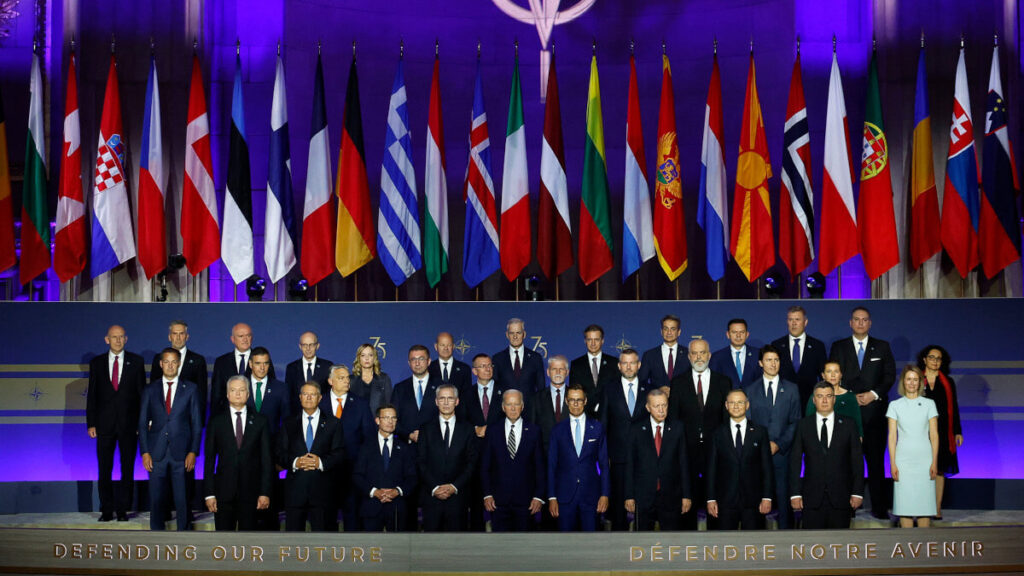NATO Addresses China’s Support for Russia Amid the Ukraine Conflict
As the NATO summit nears its conclusion, leaders from the 32 NATO member countries and their Asia-Pacific partners are poised to discuss China’s growing support for Russia in the ongoing Ukraine conflict. This crucial discussion will take place before the alliance meets with Ukrainian President Volodymyr Zelensky.
The summit, which commemorates NATO’s 75th anniversary, has seen significant developments over the past few days, including a much-anticipated press conference by U.S. President Joe Biden. Biden’s address comes amidst concerns about his health and his political viability against Republican rival Donald Trump in the upcoming November elections.
Growing Concerns Over Sino-Russian Partnership
One of the focal points of the summit has been the strategic partnership between Moscow and Beijing, which has raised "deep concerns" within the Atlantic Alliance. In a joint statement released in Washington, NATO members emphasized the gravity of China’s support for Russia. NATO Secretary General Jens Stoltenberg underscored at a press conference that China is supplying Russia with dual-use civilian and military equipment, such as microprocessors, which Moscow could repurpose for making missiles, bombs, planes, and other weapons.
The presence of Chinese President Xi Jinping alongside Russian President Vladimir Putin underscores the deepening ties between the two nations, thereby elevating the alliance’s concerns.
Expanding NATO’s Focus to Asia
The alliance’s apprehension extends beyond Europe. NATO leaders will hold discussions with counterparts from Japan, South Korea, Australia, and New Zealand to address China’s activities in the Asia-Pacific region. According to NATO’s joint statement, China’s actions, which include cyberattacks, disinformation campaigns, and other "hybrid activities," constitute a threat not only to the Alliance but also to global security.
The situation has led to broader strategic discussions. The Swedish Foreign Minister, Tobias Billstrom, has called for NATO to intensify its focus on China, especially in light of Trump’s previous criticisms of the organization. As part of this shift, NATO must affirm its commitment to countering Russian aggression while recognizing the Asian geopolitical landscape as an area of concern.
Ukraine’s Struggles Against Joint Military Maneuvers
In recent developments, China and Belarus have commenced joint military exercises near the Polish-Ukrainian border. This move has heightened anxieties among NATO allies and Ukraine, which continues to resist Russian aggression.
The summit has also seen NATO leaders unveil robust measures to support Ukraine. These include the imminent delivery of American F-16 fighter jets, advanced air defense systems, and a financial aid package valued at approximately 43 billion dollars. These actions reflect the alliance’s reaffirmation that Ukraine is on an "irreversible path" to NATO membership.
Broader Implications for Global Security
China’s refusal to condemn Russia’s invasion of Ukraine in February 2022 and its recent military maneuvers with Belarus underscore Beijing’s increasingly assertive role on the global stage. While China has labelled NATO’s accusations as "smears," the implications of its alliance with Russia are becoming harder to ignore.
As the summit wraps up, the focus remains on bolstering collective security and addressing the burgeoning partnership between China and Russia. NATO’s leaders are poised to take significant steps to uphold both Euro-Atlantic and global security, navigating a complex and dynamically evolving geopolitical landscape.
For more details on NATO’s stance and global defense efforts, visit the NATO Official Website.
